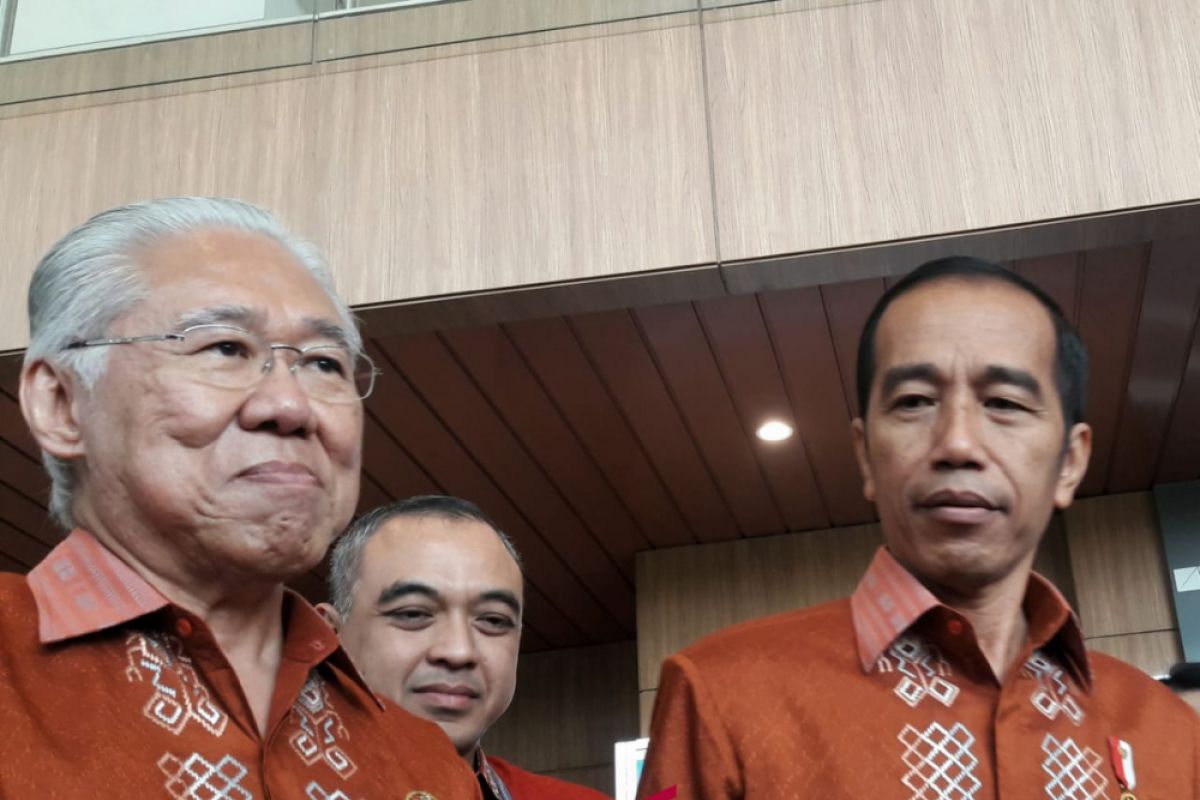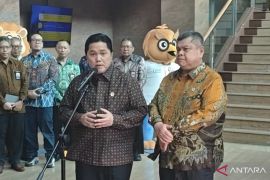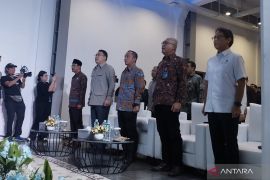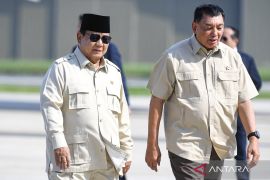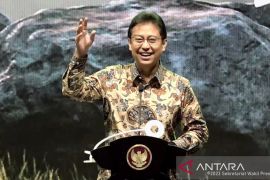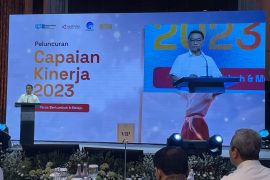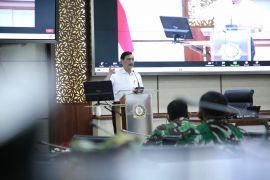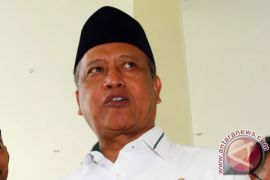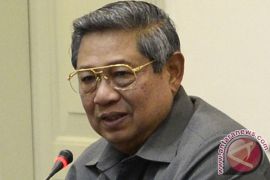The Trade Ministry is seeking to reach trade agreements with more countries in a bid to increase exports, which have been in the doldrums in the past several years, the Minister said.
"In line with the instruction of President Joko Widodo , we have to open new market with new trade agreements to increase exports," the Minister said in a press conference with theme "Four Years of the Government of Joko Widodo-Jusuf Kalla: Developing Indonesia Toward Advanced Nation" here on Tuesday.
The three agreements signed by the government in the past four years included one with Palestine under which Palestinian commodities mainly dates and olive oil are exempted from import duty.
"What we need to watch and prevent is free riders," Enggartiasto said.
The other two agreements are with Chile and Australia.
The trade agreement with Australia is Indonesia-Australia Comprehensive Economic Partnership Agreement (CEPA), negotiation on which has been wrapped up, he said, adding it only waits for implementation.
Enggartiasto said there are eight trade negotiations in progress and three agreements are reviewed and two other are in early process of discussion.
"Therefore, altogether we hope to sign 13 trade agreements and hopefully they are effective in the first half of 2019," he said.
He said in preparing trade agreement, the business sector is involved.
Meanwhile, Coordinating Minister for Economy Darmin Nasution said the economy has grown steadily in the past four years though rather sluggishly.
In 2015, the economic growth was 5.02 percent, down to 4.79 percent in 2015 before rising again to 5.02 percent in 2016 and to 5.07 percent in 2017.
In the first half of 2018, the country`s economic growth was jacked up 5.17 percent amid the amid the global economic malaise.
"The economy grew from 2014 to 2017 but slowly," Darmin said, adding but it was quite an achievement amid the global economic turbulence, worsened by the trade war between the United States and China lately.
He also pointed to success in reducing poverty and economic gap saying the poverty ratio had been reduced to a record low at 9.8 percent, adding the Gini ratio was 0.89 percent the best ever recorded in 7-8 years with unemployment rate narrowing to 5.13 percent.
Also quite significant was the success in keeping inflation low down from 10 percent 20 years earlier to more than 10 percent in 2014 and around 3.5 percent in the past four years.
Finance Minister Sri Mulyani Indrawati spoke about improvement in the budget management in the past four years.
Sri Mulyani said the budget deficit has continued to narrow from 2.3 percent of the Gross Domestic Product (GDP) in 2014, to 2.1 percent in 2018.
The narrowing deficit in the state budget was in line with the cut in primary balance deficit from 0.92 percent of the GDP in 2014 to 0.44 percent in 2018.
The cut in the primary balance deficit means an increase in the capacity to pay the interest on debt from the state source of fund, she said.
The increase in the payment capacity was thanks to a significant increase in tax revenues since 2014. In 2014, taxes contributed 74 percent to the state income and the contribution rose to 81 percent in 2018.
In reaction to criticism about debts, the Minister said one should not see the nominal but also how the fund had been spent, she said.
Reporting by Sella Panduarsa Gareta (SYS/AS/f001)
Editing by A Saragih
Reporter: Antara
Editor: Fardah Assegaf
Copyright © ANTARA 2018
